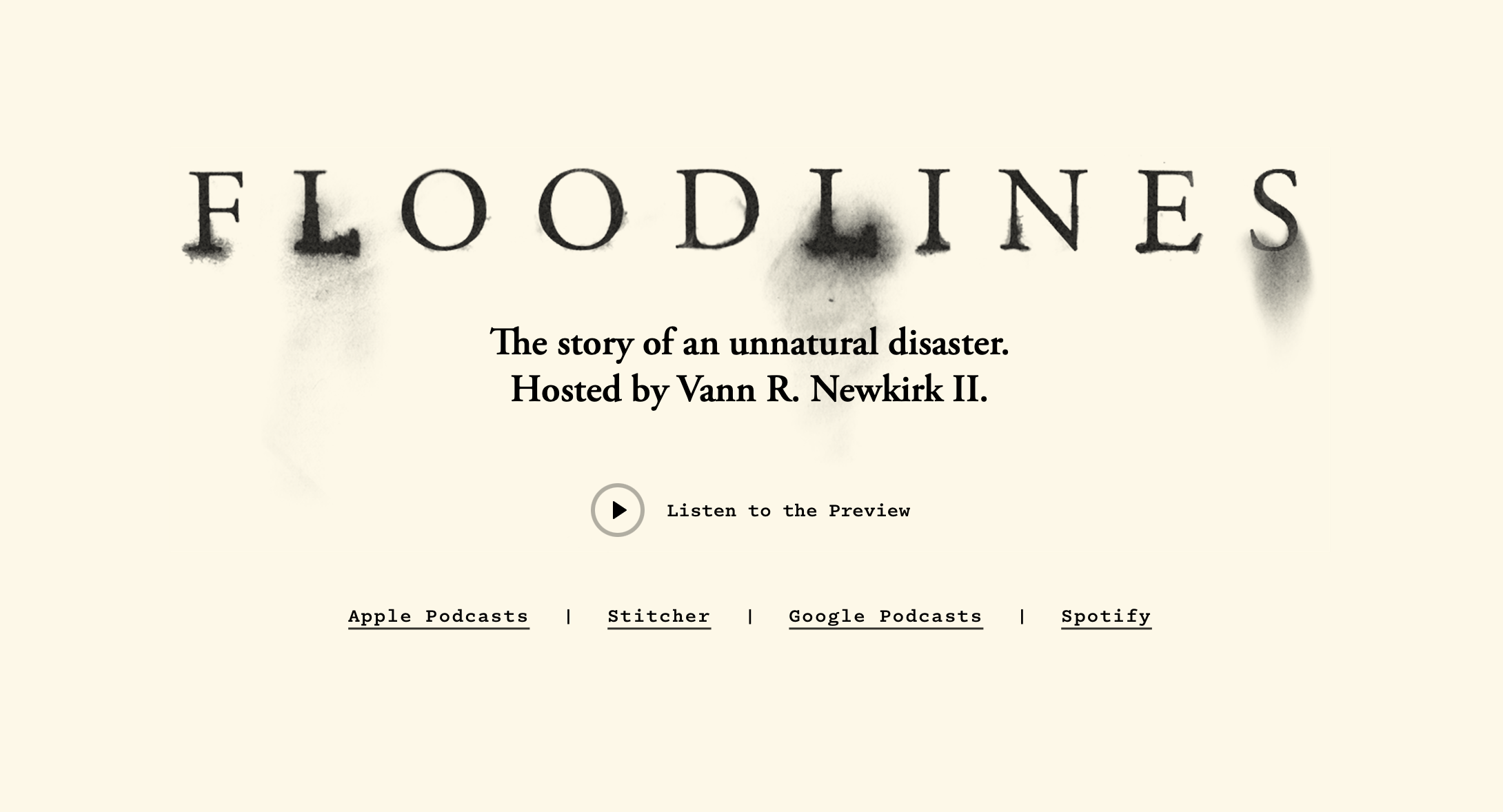“Well, I think the one that was most penetrating that I’ll never forget is in St. Bernard Parish. The whole levee just disappeared. Liquified. So all the ships and the shrimp boats and everything just went right over the Arpent levee and into St. Bernard, and then the water couldn’t get out. And so you had cars on top of houses that we found, and you had these skilled care facilities with all these dead senior citizens inside of them. It was, it was like a scene from Dante’s hell. It was really hard.” —J. David Rogers, “Floodlines Part VI: ‘Reckoning,'” The Atlantic, March 11, 2020 (retrieved March 26, 2024)
Read the transcript of each part here






